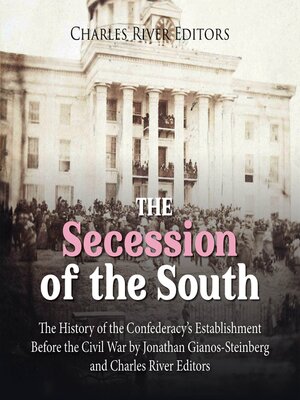The Secession of the South
audiobook (Unabridged) ∣ The History of the Confederacy's Establishment Before the Civil War
By Jonathan Gianos-Steinberg

Sign up to save your library
With an OverDrive account, you can save your favorite libraries for at-a-glance information about availability. Find out more about OverDrive accounts.
Find this title in Libby, the library reading app by OverDrive.



Search for a digital library with this title
Title found at these libraries:
| Loading... |
The election of Abraham Lincoln was the impetus for the secession of the South, but that was merely one of many events that led up to the formation of the Confederacy and the start of the Civil War. Sectional hostility over the issue of slavery had been bubbling for most of the 19th century, and violence had already broken out in places like Bleeding Kansas. Political issues like the Missouri Compromise, popular sovereignty, and the Fugitive Slave Act all added to the arguments.
The secession of the South was one of the seminal events in American history, but it also remains one of the most controversial. Over the last 160 years, the greatest debate over the Civil War has remained just what caused it, and as recently as April 2010, Virginia's governor declared April "Confederate History Month in Virginia," issuing a proclamation that made no mention of slavery. Facing an intense backlash, Virginia's governor first defended his proclamation by noting "there were any number of aspects to that conflict between the states." Days later, the governor apologized for the omission of slavery. In turn, the governor's backtracking was criticized by many Southerners, most prominently the Sons of Confederate Veterans, a large organization dedicated to commemorating the Confederates. The governor later declared that there would be no Confederate History Month in 2011.
Arguments over the war's causes are nothing new. Before the war had even ended, Confederate soldiers were asserting that they were fighting for states' rights. In the early 20th century, prominent historians such as Charles Beard theorized that the war was based on economic differences between the North and South. Although slavery had been the dominant political issue in the 50 years leading up to the Civil War, these historians began to assert that slavery was not necessarily a factor.






